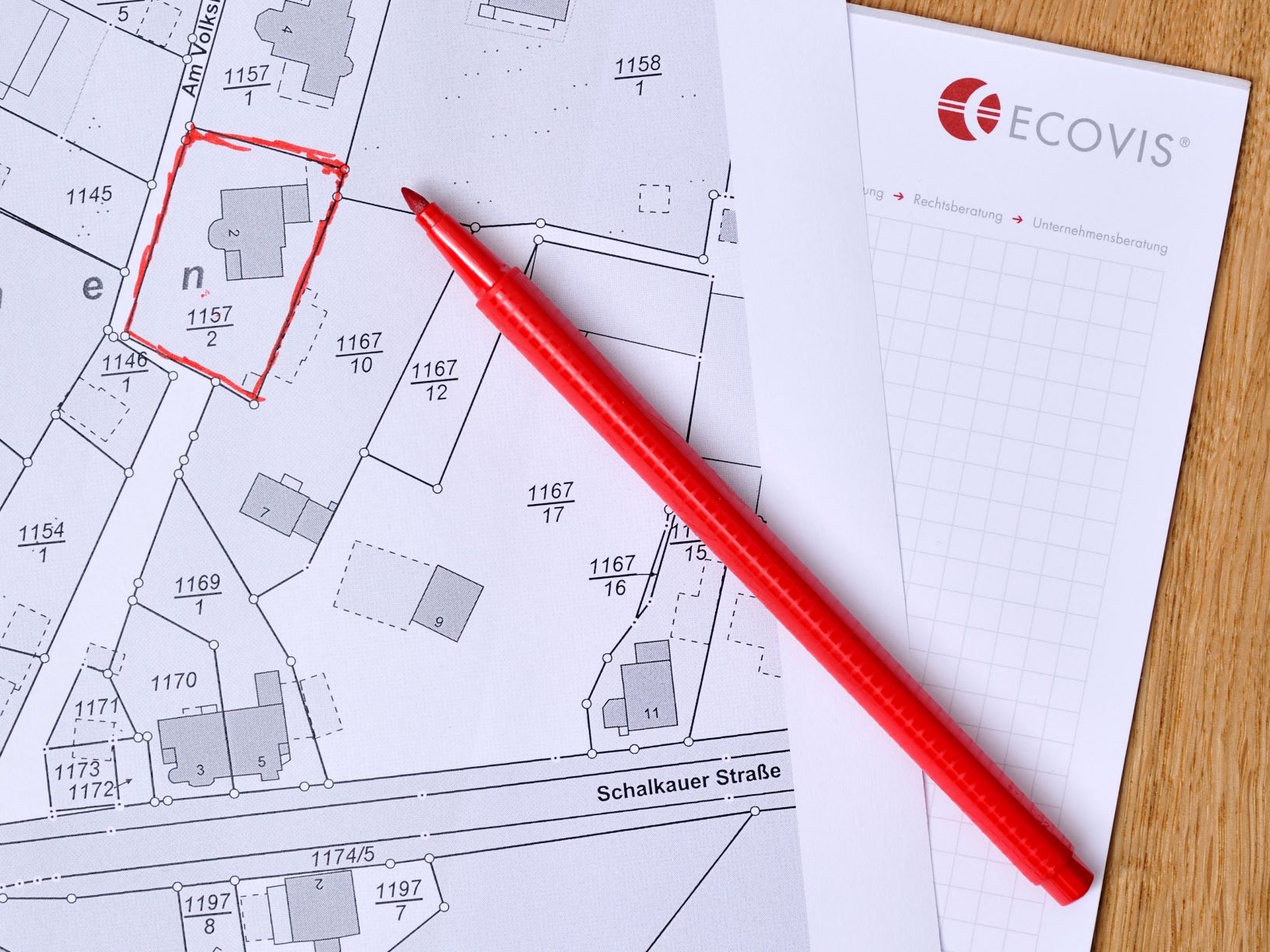Change regarding records of beneficial owners, sanctions for non-entry of details and false registration and other changes from 2021
Government bill on the Records of Beneficial Owners
In June 2020, the Government of the Czech Republic submitted a bill on a new act on the records of beneficial owners to the Chamber of Deputies. The aim of the bill is to reflect the requirements of the so-called 5 AML Directive of the European Parliament and of the Council, into the Czech legislation and simplify the records of beneficial owners. The new law was approved by the Czech Chamber of Deputies on 19th January 2021 and was published in Collection of Laws on 3rd Ferbruary 2021 and shall enter into effect from 1st June 2021 as the new Act no. 37/2021 Coll., on records of beneficial owners.
Concurrently, on the basis of this 5 AML Directive, the Chamber of Deputies has already approved an amendment to Act No. 253/2008 Coll., on Certain Measures against the Legalisation of Proceeds from Crime and the Financing of Terrorism, being closely connected to this Act, with its efficacy from 1 January 2021 as Act No. 527/2020 Coll., amending Act No. 253/2008 Coll., on Certain Measures against Legalisation of Proceeds from Crime and Financing of Terrorism, as amended, and other related laws, laws related to the adoption of the Act on the Records of Beneficial Owners and Act No. 186/2016 Coll., on Gambling, as amended as part of the prevention of money laundering, higher demands on the identification of high-risk clients precisely through the identification of beneficial owners.
Detailed definitions of terms regarding the records of beneficial owners in the Czech Republic
In the introductory provisions of the draft of the new Act on the Records of Beneficial Owners, the beneficial owner is defined as any natural person who is an end beneficiary or a person with final influence..
The end beneficiary is a person who may have, directly or indirectly through another person or legal arrangement, a substantial part of the total property benefit generated by the activity or liquidation of the legal person or generated by the administration or dissolution of the legal arrangement (hereinafter "benefit") and does not pass this benefit onto others.
A person with final influence is a person who may, without instructions from another, directly or indirectly exercise a decisive influence in a legal person or in the administration of a legal arrangement.
Definition of end beneficiary
The end beneficiary of a legal person is any person who can directly or indirectly receive more than 25% of the total property benefit generated during the activity or liquidation of the legal person, and does not pass this benefit onto others; the benefit is presumed not to be passed on. The end beneficiary of a business corporation is any person who directly or indirectly has the right to a share in the profit, other own resources or liquidation balance of the business corporation (hereinafter "profit share") greater than 25%, and does not pass this share of benefit onto others; the benefit share is presumed not to be transferred.
For the purposes of calculating the amount of the indirect benefit-share, in the case of a) chaining, the benefit-sharing shares to which the attached person or legal arrangement is entitled shall be multiplied and b) branching the product of the benefit-sharing shares from individual chaining.
Definition of a person with final influence
A person with final influence in a business corporation is any natural person who is a controlling person in accordance with the law governing the legal relations of business corporations. A person with a final influence in a non-business corporation and in a housing or social cooperative is considered to be any natural person who is a member of their statutory body. The fact that a natural person is a person with final influence in a corporation is indicated by their direct or indirect share in the voting rights, which significantly exceeds the shares in the voting rights of other persons, especially if it is greater than 25%.
For the purposes of calculating the amount of the indirect share of voting rights, in the case of
a) the chain multiplies the shares of the voting rights held by the related parties or the legal arrangement, whereby, with the exception of the share of the voting rights in the corporation which is the subject of the calculation,
1. 100% count shares in voting rights establishing a presumption of control under the law governing the legal relations of business corporations, and
2. 0% includes shares not listed in point 1.
b) branching adds the products of shares in voting rights from individual chains.
Definition of a person in top management
A person in top management is any natural person who ensures the day-to-day or regular management of the legal entity‘s activities, i.e. business management, and is further:
1. a member of a statutory body of a legal entity or a person in a comparable position or represents a legal entity in this body
2. directly subordinate to the statutory body of the legal entity or its member A person with final influence in a business corporation is any natural person who is a controlling entity under the law governing the legal relations of business corporations.
It is conclusively presumed that every person in the top management of the corporation is its real owner,
a) if no beneficial owner can be identified, even with all reasonable efforts to require the registrant; or
b) if the person with final influence in the corporation is a legal entity that does not have a real owner (the Czech Republic and other specific organizations listed in the law).
If the person with final influence in the corporation is a legal entity that does not have a real owner according to § 7 of the Act, and at the same time the end beneficiary of the corporation is another person, the beneficial owners of the corporation are conclusively presumed to be every person in the top management of this corporation, as well as every natural person who is its end beneficiary.
If the person with final influence is a legal entity, the beneficial owner is determined according to the above mentioned, then each person in its top management is conclusively presumed to also be the beneficial owner of all corporations in its subordinate structure.
Definition of beneficial owner for a foundation, an institution, a public benefit company and a trust fund
The beneficiary owner of a private foundation is conclusively presumed to be any natural person who
a) is its founder,
b) is a member of its administrative or supervisory board or its auditor or a person of similar status; or
c) in whose personal support, according to the founding legal action of the foundation, lies its purpose.
Every natural person is conclusively presumed to always be the real owner of an institution or a public benefit society of their
a) founder or
b) CEO or a member of its administrative or supervisory board or a person in a comparable position
The real owner of the legal arrangement (trust fund) is conclusively presumed to always be also every natural person who is
a) their founder
b) their trustee
c) authorised to supervise the administration of the legal system and who may appoint or dismiss the trustee or the trustee,
d) their ultimate beneficiary
e) from the circle of persons in whose main interest the legal arrangement has been established or is administered, if they are not the ultimate beneficiary.
If there is a legal entity exercising power in a foundation, an institute, a public benefit company or a trust fund, the beneficial owner is conclusively presumed to be the same person as the beneficial owner of such legal entity.
Persons and organisations without an beneficial owner
The following entities are conclusively presumed not to have an beneficial owner:
a) state and regional self-governing units
b) voluntary association of municipalities
c) state contributory organisations and contributory organisations of the regional self-governing unit
d) a school legal entity established by the state, a regional self-governing unit or a voluntary association of municipalities,
e) public research institutions
f) a legal person established by law or by an international treaty
g) state enterprise and national enterprise
h) a district and regional chamber or an incorporated community pursuant to another law,
i) European Grouping of Territorial Cooperation
j) political party and political movements
k) a church and a religious society and other legal entities pursuant to the law governing churches and religious societies,
l) trade unions and employers' organisations,
m) hunting society
n) association of unit owners
o) a legal person in which the Czech Republic, a region or a municipality has, directly or indirectly, all shares in the benefit and voting rights, and
p) a non-profit company and an institute founded by the Czech Republic, a region or a municipality.
The registrant and the obligation to record the steps for the purpose of ascertaining and identifying the beneficial owner
The registrant is a legal entity that has an beneficial owner, or a trustee or a person in a similar position with a foreign trust fund (hereinafter referred to as the “trustee”) of a legal arrangement.
The registrant has the obligation to obtain and record complete, accurate and up-to-date data on his beneficial owner or on the beneficial owner of the legal arrangement. In particular the following data:
a) name and address of the place of residence, or residence, if it is different from the address of the place of residence, date of birth, birth number or similar unique identifier, if assigned, and the nationality of the beneficial owner,
b) information on the nature of the position of the beneficial owner,
c) an indication of the size of the direct or indirect shareholding of the beneficial owner, if that shareholding establishes his position,
d) an indication of the fact establishing the status of beneficial owner, unless established by a share
e) a description of the structure of the relationship, if any, including information to the extent referred to in points h) and i) on legal persons or arrangements in the structure of the relationship and the names of natural persons acting independently in the structure of the relationship,
f) the date from which the natural person becomes the beneficial owner
g) the date up to which the natural person had been the beneficial owner,
The registrant is also obliged to record the steps taken in identifying the beneficial owner in cases where the beneficial owner of the corporation is a person in senior management. The obtained data are stored by the data for the period for which the natural person is the real owner, and further 10 years from the termination of his status as the real owner.
The records holder is also obliged to communicate the above-mentioned data to the liable person upon request pursuant to the law regulating certain measures against money laundering and terrorist financing or to the Financial Analytical Office, court, law enforcement body, Financial Administration of the Czech Republic and Customs administration of the Czech Republic.
The registrant is obliged to ensure that the valid data on its beneficial owner or on the beneficial owner of the legal arrangement correspond to the beneficial state. A motion to initiate proceedings for the registration of the beneficial owner must be submitted by a court or notary without undue delay after the decisive fact has arisen (according to transitional provisions within 6 months of entry into force of the law if no data is entered and within 1 year for updating already registered data. This obligation is fulfilled even if the data has been automatically copied.
The registrant shall be entitled to provide the necessary cooperation to the beneficial owner, the end beneficiary, the ultimate person and the person through whom the ultimate beneficiary may benefit or the final influence, including notification of the creation of his position to fulfil his obligations.
Public access to beneficial owner data
Data on the real owner are accessible in the Register of beneficial owners not only for the entire duration of the person concerned, but min. 5 years from the date of dissolution of the legal entity or legal arrangement.
Everybody will be entitled to obtain an extract of valid data from the Register of beneficial owners through the website of the Ministry of the Interior to the following extent:
- from a legal person
1. name, state of residence, year and month of birth, citizenship of the beneficial owner,
2. information on the nature of the beneficial owner's position, the size of the beneficial owner's direct or indirect interest, if that interest is established by his position, the date from which the natural person is the beneficial owner and the date until which the natural person was the beneficial owner, and
3. where appropriate, other information to the extent the name and address of the place of residence, or residence, if different from the address of the place of residence, date of birth, birth number or similar unique identifier, if assigned, and the nationality of the beneficial owner, the beneficial owner has given consent or other data which are already published in a public register and have been automatically transcribed, and
- in the case of a legal arrangement, the name and address of the place of residence and, where applicable, the place of residence, if different from the address of the place of stay, date of birth, birth number or similar unique identifier, if assigned, and the nationality of the beneficial owner. the owner has given consent or other data that are already published in the public register and have been automatically transcribed,
- information on the fact establishing the status of beneficial owner, if not based on shareholding, and a description of the structure of relationships, if any, including information to the extent the name of the legal entity or designation of the legal entity whose beneficial owner is and the identification number of the legal entity or legal arrangement, the beneficial owner, if assigned, of the legal persons or arrangements in the structure of the relationships and the names of the natural persons acting independently in the structure of the relationships, the disclosure of which was proposed or requested by the registrant or which are the result of automatic transcription; and
- details of the date on which the entry or automatic transcript was made, the time at which the valid data was made available and a note on the irregularity.
The Ministry will allow anyone to obtain a confirmation on its website that no information is kept in the Register of beneficial owners about the beneficial owner of a legal entity or legal arrangement.
Disclosure of publicly available data will be possible only by a court decision at the request of the registrant or the person entered in the Register of beneficial owners as the beneficial owner, if this is not contrary to the public interest and if it is not a fully independent person and in cases worthy of special consideration.
Access to certain data regarding the beneficial owner of a legal arrangement
Court will make it possible to obtain from the Register of beneficial owners a partial electronic extract of valid data in the range of data on name, state of residence, year and month of birth and citizenship of the beneficial owner and data on the nature of the beneficial owner, the size of direct or indirect share of beneficial owner, if this share of his position, on the fact establishing the position of the beneficial owner, if not established by the share, a description of the relationship structure, if any, including data in the relationship structure and names of natural persons acting independently in the relationship structure, the date from which the natural person is the beneficial owner, the date until which the natural person was the beneficial owner, the name of the legal entity or the designation of the legal arrangement of which the beneficial owner is concerned, the identification number of the legal person or legal arrangement of which the beneficial owner is, if assigned, to the one who
a) demonstrates an interest in the prevention of the crime of money laundering, the laundering of the proceeds of negligence and their source and the offenses of terrorist financing and the support and promotion of terrorism, or
b) requests to obtain such data in relation to a legal arrangement from which the end beneficiary may benefit or the person with final influence may exercise its influence over a foreign legal person established outside one of the Member States of the European Union.
Access to all data regarding the beneficial owner
Court will make it possible to obtain from the Register of beneficial owners a complete extract of valid data and data which have been deleted without replacement or with replacement by new data to:
a) a person registered in the Register of beneficial owners as the beneficial owner,
b) a person who has filed a motion to initiate registration proceedings to which he is entitled pursuant to Section 26 of the Act, and
c) the record holding person
The Ministry will make it possible, in a manner enabling remote access, to obtain from the Register of beneficial owners a complete extract of valid data and data which have been deleted without replacement or with replacement by new data to:
The Ministry will make it possible, in a manner enabling remote access, to obtain from the Register of beneficial owners a complete extract of valid data and data which have been deleted without replacement or with replacement by new data to:
a) court or insolvency administrator for the purposes of court proceedings,
b) notary for the purposes of registration,
c) a body active in criminal proceedings for the purposes of criminal proceedings and the Public Prosecutor's Office also for the purposes of exercising non-criminal powers,
d) administrators of tax, fee or other similar monetary performance for the purposes of their administration,
e) the administrative body for the purposes of conducting infringement proceedings,
f) the intelligence service for the purposes of performing tasks pursuant to the law governing the activities of intelligence services,
g) the Financial Analytical Office, the Czech National Bank and other bodies in the performance of activities under the Act regulating certain measures against the legalisation of proceeds from crime and the financing of terrorism or the Act regulating the implementation of international sanctions in order to maintain international peace and security, protect fundamental human rights and combat terrorism,
h) the Czech National Bank in the supervision of persons operating on the financial market and in the performance of activities pursuant to the Act regulating recovery procedures and resolution of the crisis on the financial market,
i) the National Security Office, the Ministry of Interior or the intelligence service for the purposes of security proceedings pursuant to the law governing the protection of classified information and security clearance,
j) the Supreme Audit Office for the purposes of exercising its powers,
k) the Ministry of Finance for the purposes of exercising its powers pursuant to the law governing gambling,
l) Office of the Government Representation in Property Affairs for the purposes of exercising its powers,
m) State Land Office for the purposes of exercising its powers pursuant to legal regulations on the basis of which the State Land Office disposes of state property,
n) the Office for Oversight of Financing of Political Parties and Movements for the purposes of exercising its powers,
o) the obligated person in connection with the identification and control of the client in accordance with the law regulating certain measures against the legalization of proceeds from crime and terrorist financing,
p) the provider of public financial support for the purposes of exercising its powers under the law governing financial control,
q) the managing authority, the intermediate body, the certifying authority and the audit authority for the purposes of exercising their powers in accordance with the directly applicable regulation of the European Union laying down common provisions on the European Structural and Investment Funds,
r) the paying agency and the certifying body for the purposes of exercising their powers under the directly applicable rules of the European Union governing the financing, management and monitoring of the common agricultural policy, and
s) the one provided by a statute
Methods of entry in the records of beneficial owners
The new Act on the Records of Beneficial Owners provides for the electronic submission of a proposal for registration proceedings through a prescribed form with el. signature or a certified signature on the document that will have to be converted. The application for registration must be substantiated by documents on the facts to be entered in the register of beneficial owners, unless the data on the registered facts can be ascertained from the information system of the public administration, which can be viewed by a court with remote access. Documents are documented in electronic form; Documents submitted for registration with a non-business corporation or legal arrangement may also be submitted in paper form.
A document proving the identity of a foreign natural person means, in particular, an extract from foreign records similar to the population register, an extract from foreign records similar to the public register or the register of beneficial owners, an identity document or a travel document.
Documents proving the status of the beneficial owner or the structure of relations means, in particular, an extract from the public register or foreign records similar to the public register or the records of beneficial owners, founding legal proceedings, list of shareholders, decision of the authority to pay a share, benefit of shareholders the registrant or beneficial owner's status as beneficial owner or the structure of the relationship, if they are based on a legal fact which cannot be substantiated even with all reasonable efforts to make the declaration of the beneficial owner or beneficial owner if based on legal facts.
It is sufficient to provide the documents in the application for registration in a simple copy. Documents that are in a foreign language are submitted in the original version and at the same time in a simple translation into the Czech language, unless the court informs the petitioner that it does not require a translation. Such a communication may be made by the court on its official notice board for an indefinite number of proceedings in the future, even in relation to selected languages.
In the event that the real owner has given his consent to the publication of his data, a document proving this consent with the el. signature or an officially certified signature.
The registrant is submitted by the registrant and, in the case of a branch association, by the main association. The novelty is that if the registrant does not file an application for registration within 15 days from the day when the obligation arose, anyone who proves a legal interest in the application may file an application for registration and submit documents proving the real owner to the application for registration. The participant in the proceedings on the application for registration is the registrant and the petitioner, if he is a person different from the registrant.
Title IV The draft of the new Act on the Records of Beneficial Owners is devoted to the involvement of notaries in the process of registration in the Register of beneficial owners in order to relieve the already burdened courts. The notary will make the registration at the proposal of the authorized person and will be allowed to use remote access to the registration proposals. The notary will also have the right to reject the application for registration, which should paradoxically lead to a reduction in the number of rejected applications, as direct cooperation with a notary is envisaged, who should draw the applicant's attention to any shortcomings.
Automatic transcription into the register of beneficial owners
The third, user-friendliest, method of registration is the so-called automatic transcription of data, which the system will perform automatically, unless the registrant proposes another registration. Given that the beneficial owner can often be read directly from the publicly accessible commercial register, data on recorded facts will be transcribed through the public administration system, if it is possible to read this data from it. If the initial data are correct and fully comply with the requirements of the law, it should be possible to allow the deadline for registration to expire on the basis of the draft new law on the registration of beneficial owners, and the data on the beneficial owner should then be written automatically. However, the problem would arise if the persons registered in the public register did not meet the definition of the beneficial owner, and yet the company would have them automatically rewritten without further ado.
Proceedings on irregularities in the records of beneficial owners
Irregularity proceedings are a novelty that will make it possible to correct any errors in the records of beneficial owners. Upon notification, not a proposal, to an authorized entity (e.g. the police or tax authorities) or on its own initiative, the court will initiate proceedings to remedy the irregularity. The court shall first call on the registrant to resolve the irregularity or to refute it within a reasonable time. An appeal against this resolution is not admissible. The court shall enter a note on the irregularity in the Register of beneficial owners together with the issuance of the resolution on the initiation of irregularity proceedings; the court shall record the note without issuing a decision. The note on the irregularity shall state what the irregularity is seen and the date on which the irregularity procedure was opened. The trial will take place only if the judge deems it necessary. Otherwise, it will decide without negotiation. The draft law on the registration of beneficial owners entitles the court to decide on what led to the entry of incorrect data in the register and also on who is responsible for these irregularities.
The procedure for detecting an irregularity within a special court proceeding is already contained in the amendment to Act No. 253/2008 Coll on Certain Measures against the Legalisation of Proceeds from Crime and the Financing of Terrorism.
Penalties for not entering data in the register of beneficial owners
An important change in the draft of the new Act on the Records of Beneficial Owners is the introduction of sanctions for breaches of certain obligations set out in the Act on the Records of Beneficial Owners. The offense should now be:
(i) breach of the obligation to register the beneficial owner, even within a reasonable time set by the court; or
(ii) failure to secure the entry of new data even within 15 days of the court's decision on the irregularity of the entry having become final, if the court has erased the incorrect data without compensation; and
(iii) failure to provide the necessary co-operation to the registrant, if the breach has been confirmed by a court, and the offense may be committed not only by the beneficial owner, the ultimate beneficiary, the ultimate beneficiary and the person through whom the ultimate beneficiary or ultimate beneficiary may benefit.
The first type of sanction for these offenses is the possibility of imposing a fine of up to CZK 500,000. The second type of sanction is the impossibility of paying the share of profit and own resources (benefit) to persons who are not listed in the register of beneficial owners, as well as the impossibility of paying the share of profit and own resources (benefit) to business corporations that do not have any owner registered in the records of beneficial owners. In addition, these persons will not be able to participate in the voting of the highest body of the business corporation.
Another type of new sanction related to the registration of beneficial owners are new fines resulting from the new § 44a of Act No. 253/2008 Coll. on Certain Measures against the Legalisation of Proceeds from Crime and the Financing of Terrorism in the event of non - compliance with irregularities in the records of beneficial owners which may be imposed on liable persons. It should now be possible to impose a fine of up to CZK 100,000 on a liable person for non-compliance with the obligation to notify the client pursuant to Section 15a (1) of an irregularity, or CZK 1,000,000 for non-compliance with the obligation to report an irregularity to a court pursuant to Section 15a (2). resp. CZK 1,000,000 (if this action made it impossible or difficult to secure or withdraw the proceeds of crime or to enable the financing of terrorism) for breach of the obligation to act in accordance with the FAU instruction pursuant to Section 15a (4) of the above AML Act.
Entry into effect of the new law, transitional provisions and updating of data in the record of beneficial owners
The new Act on the Records of Beneficial Owners will enter into force on the first day of the fourth calendar month following its promulgation (except for certain specific provisions coming into force on 1.2.2022), ie in the case of promulgation in the Collection of Laws in January 2021.
The registrant who is not a business corporation and has not ensured the entry of any data on its beneficial owner or beneficial owner of the legal arrangement in the records of data on beneficial owners pursuant to the current Act No. 304/2013 Coll. of the new law, i.e. we assume until 1.11.2021.
The registrant who is not a business corporation and has ensured the entry of data on its beneficial owner or beneficial owner of the legal arrangement in the register of data on beneficial owners pursuant to Act No. 304/2013 Coll., as amended before the date of entry into force of this Act, shall ensure within 1 year " of this Act so that the valid data meet the requirements of this new Act.(or within 6 months if the original registration was made by 1 January 2019, if it was established by 31 December 2017, or within 15 days of its creation, if it was created from 1 January 2018) and the company from the date of entry into force of this Act so that the valid data meet the requirements of this new Act.
The registrant who has ensured the entry of data on his beneficial owner in the register of data on beneficial owners pursuant to the current Act No. 304/2013 Coll., as amended before the date of entry into force of this Act, may propose to a court or request a notary to be its beneficial owner. Automatically written next time. An automatic copy will not occur if the beneficial owner has been entered in the register of data on beneficial owners pursuant to Act No. 304/2013 Coll., as amended before the date of entry into force of this Act.
For more information, contact us at:
JUDr. Mojmír Ježek, Ph.D.
ECOVIS ježek, advokátní kancelář s.r.o.
Betlémské nám. 6
110 00 Praha 1
e-mail: mojmir.jezek@ecovislegal.cz
www.ecovislegal.cz
About ECOVIS ježek advokátní kancelář s.r.o.
The Czech law office in Prague ECOVIS ježek practices mainly in the area of Czech commercial law, Czech real estate law, representation at Czech courts, administrative bodies and arbitration courts, as well as Czech finance and banking law, and provides full-fledged advice in all areas, making it a suitable alternative for clients of international law offices. The international dimension of the Czech legal services provided is ensured through past experience and through co-operation with leading legal offices in most European countries, the US, and other jurisdictions. The Czech lawyers of the ECOVIS ježek team have many years of experience from leading international law offices and tax companies, in providing legal advice to multinational corporations, large Czech companies, but also to medium-sized companies and individual clients. For more information, go to www.ecovislegal.cz/en.
The information contained on this website is a legal advertisement. Do not consider anything on this website as legal advice and nothing on this website is an advocate-client relationship. Before discussing anything about what you read on these pages, arrange a legal consultation with us. Past results are not a guarantee of future results, and previous results do not indicate or predict future results. Each case is different and must be judged according to its own circumstances.














